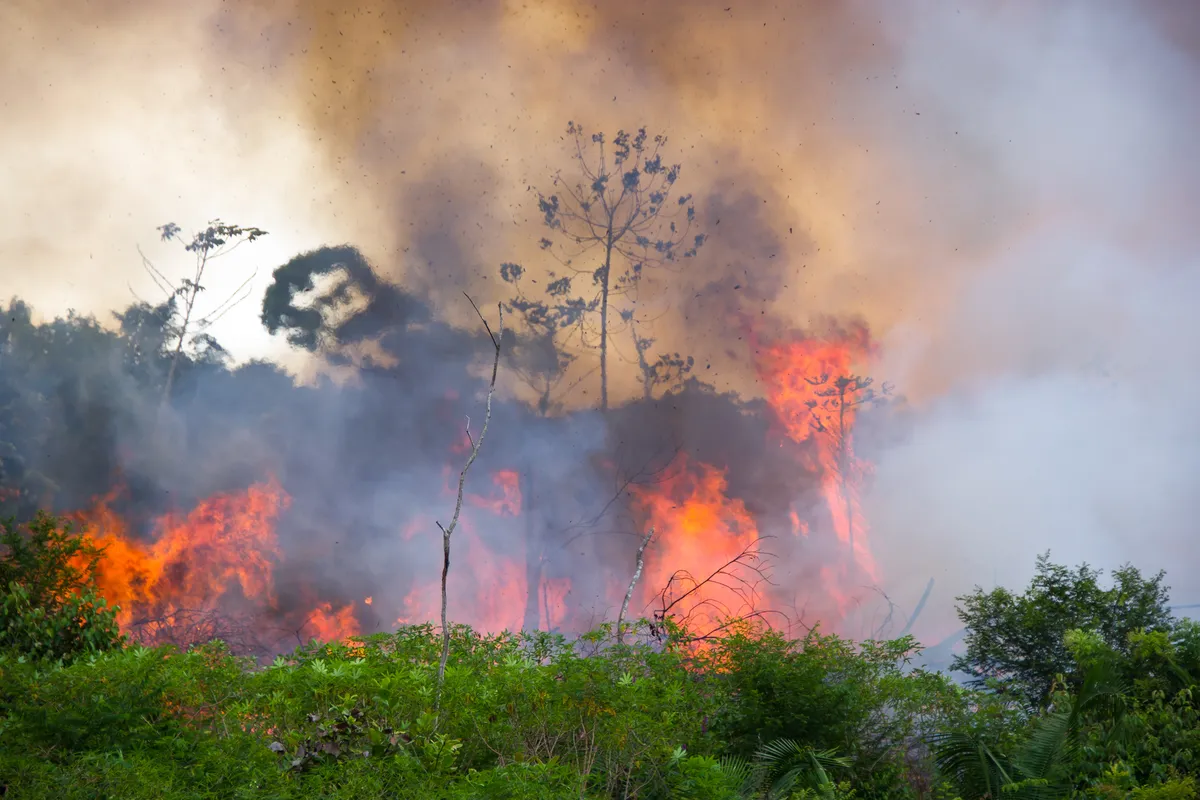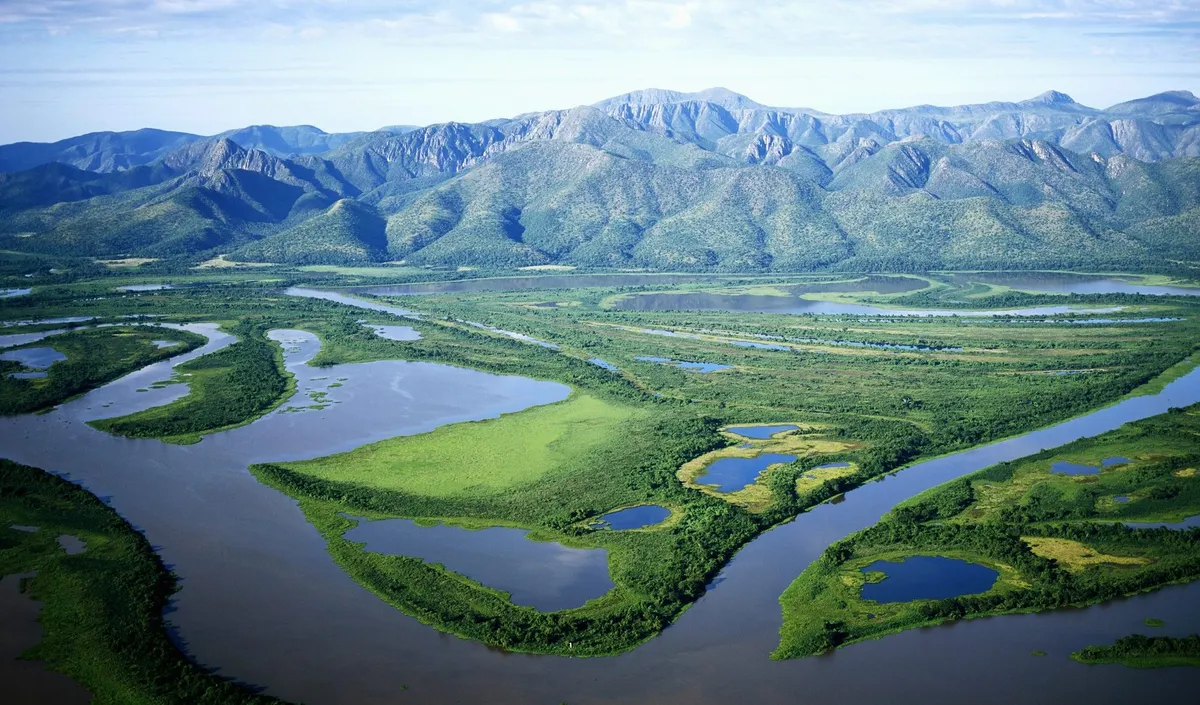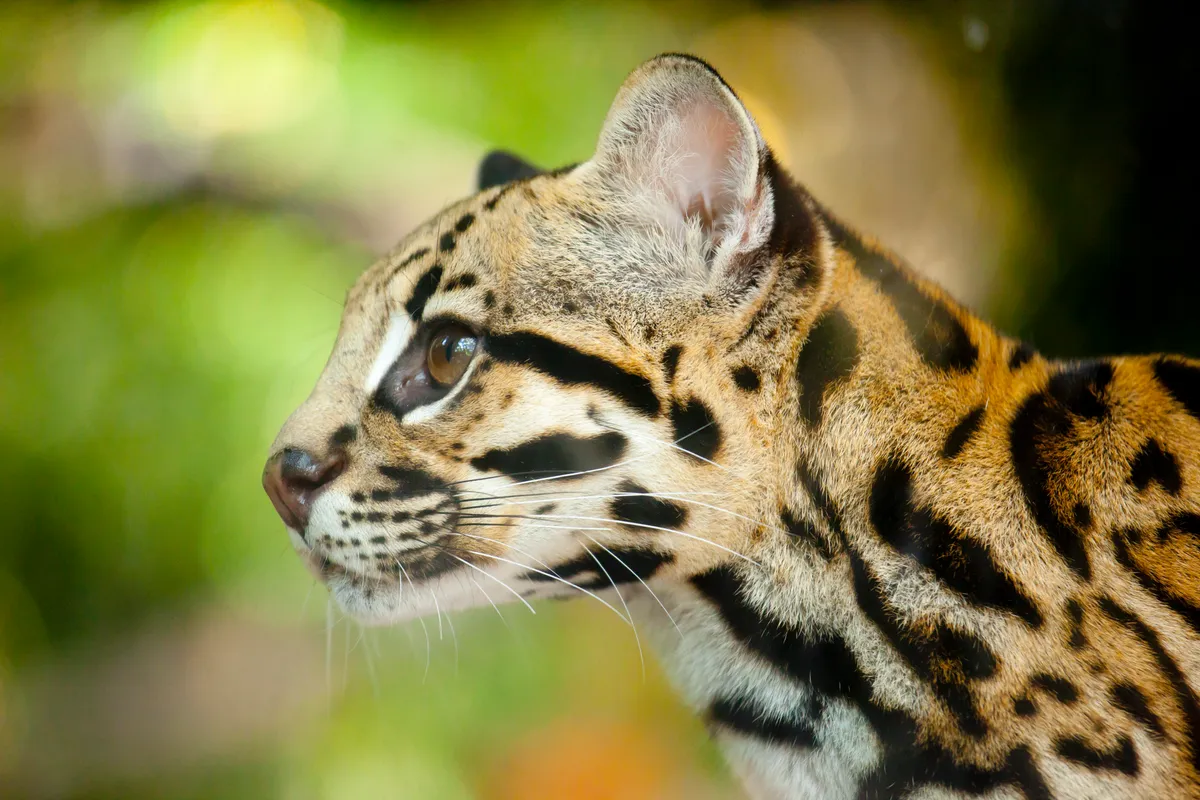The wild cat conservation charity Panthera have revised their estimates on the impact of the recent fires in the Amazon rainforest on the jaguar population.
The initial estimate by the charity had been 100 in Brazil alone, but this number has now been revised to 500 homeless or dead jaguars in Brazil and Bolivia.
According to Panthera South America Regional Director, Dr. Esteban Payan “until the rains come, this number is likely to increase”.
The new estimate is based on knowledge of the extent of burning combined with a jaguar density estimate of 2.5 jaguars per 100km2.
These devastating fires, which have seen a dramatic increase across 2019 compared to previous years, are thought to be due mainly to human activity.

This happens as the forest is deliberately cleared to make way for farming. The trees are cut down, left to dry, and are then set fire to.
This is known as ‘slash-and-burn’ farming and is sometimes done legally but is often illegal. The problem is exacerbated by drought, as without sufficient rainfall the fires are allowed to spread rapidly.
A critical wild cat habitat the Brazilian Pantanal, part of the world’s largest tropical wetland area (the Amazon Pantanal), is home to the world’s highest density of Jaguars. Unfortunately, The Amazon Pantanal is one of the areas greatly affected by recent fires, with at least 39,000 hectares being lost in just the small Paraguayan portion of the important habitat.

The speed with which these fires are spreading means that there is not much time to plan detailed conservation efforts. The jaguar has now lost nearly 40 per cent of its range, in part due to the combined effects of fires and deforestation.
Those that survive the fires face the additional challenge of loss of prey, especially that which is slow-moving, nocturnal, and less adept at escape than they themselves are, and also those that are over-hunted by people. The solitary cat species also face the additional danger of increased interactions and conflict with other jaguars.
In addition to these threats the jaguar faces direct killing, both by farmers in retaliation for loss of their livestock, and those who wish to poach them for the illegal wildlife trade, their pelts and body parts being all the more valuable as tiger and lion populations fall.
It is not just jaguars that are at risk however. The Amazon as a whole has a very high density of wild cat species of many kinds. Bolivia alone is home to eight cat species, including puma, ocelot, margay and jaguarundi.

In addition to cats the Amazon is home to ten per cent of all the known species on earth and is the richest region in the world in biodiversity. All these species could be affected if burning continues at the current rate. This makes tackling the causes of the fires all the more important.
Moreover, burning and loss of the Amazon could have far-reaching effects on our climate. Known as ‘the lungs of the earth’, the Amazon plays a vital role in storing carbon, releasing oxygen, and absorbing heat.
“The shock waves of these exceptionally large and, for the most part, human-lit fires are being felt not only by the wildlife and people of Brazil and Bolivia, but also those in Peru and Paraguay," states Dr. Howard Quigley, Jaguar Program and Conservation Science Executive Director.
"These fires stand to directly impact the continent, and in the end, the health of the planet as they hurt one of the cradles of biodiversity and greatest counter forces against global warming.”
Main image: Jaguar. © Mint Images/ Art Wolfe/Getty
